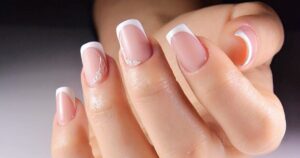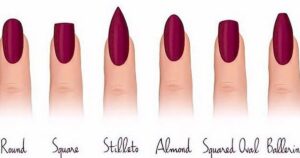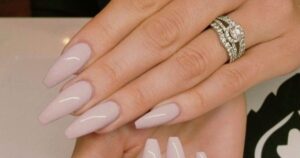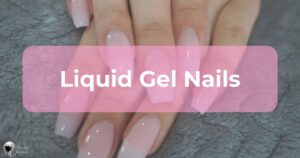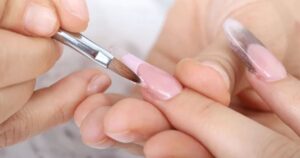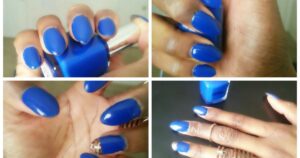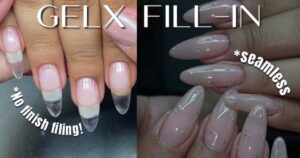Ingrown hairs can be a bothersome issue for many people, causing discomfort and sometimes even pain. One common question that arises is whether ingrown hairs itch. The answer is yes. Ingrown hairs can cause itching when hair grows back into the skin instead of outward. It can irritate the surrounding area, leading to itching and other unpleasant symptoms.
The itchiness associated with ingrown hairs is primarily caused by inflammation. When a hair becomes trapped beneath the skin’s surface, it can create a minor bump or pustule. Do you know about Does Ingrown Hairs Itch? This triggers the body’s immune response, resulting in redness, swelling, and itching.
Several factors can contribute to the development of ingrown hair itchiness. Shaving, waxing, or plucking can disrupt the natural hair growth pattern. It increases the likelihood of ingrown hairs. Curly or coarse hair types are more prone to becoming ingrown, as they tend to curl back into the skin.
Ingrown Hairs

Before we discuss whether ingrown hairs itch, let’s understand what ingrown hairs are. Ingrown hairs occur when a strand grows back into the skin instead of growing out of it. This can happen when the hair follicle becomes clogged or is too short and trapped beneath the skin’s surface. Ingrown hairs can appear as small, red bumps or painful, inflamed lesions.
The Causes of Ingrown Hairs

Several factors can contribute to the development of ingrown hairs. One common cause is improper hair removal methods, such as shaving or using dull razors. Additionally, curly or coarse hair is more prone to becoming ingrown. Tight clothing, excessive sweating, and certain skin conditions can also increase the risk of ingrown hairs.
The Relationship Between Ingrown Hairs and Itching
Now, let’s explore whether ingrown hairs cause this. It is a common symptom associated with various skin conditions and irritations. In the case of ingrown hairs, itching can occur, but everyone does not experience it.
Inflammation and Irritation
Ingrown hairs can cause inflammation and irritation in the surrounding skin. When the hair strand grows back into the skin, it can trigger a response from the body’s immune system. This immune response can lead to redness, swelling, and stinging in the affected area.
Healing Process
It may also occur as the body tries to heal the affected area. It is a natural response that can arise during the healing process. When the skin is damaged or irritated, the body releases substances that can cause stinging as defense mechanisms.
Skin Sensitivity
Individuals with sensitive skin may be more prone to experiencing itching from ingrown hairs. Sensitive skin tends to react more strongly to irritants and can become inflamed. Even minor ingrown hair can cause significant itching and discomfort in such cases.
Relief and Prevention
If you experience itching due to ingrown hairs, there are several ways to find relief and prevent further irritation.
Avoid Scratching
While it may be tempting to scratch the itchy area, it is important to resist the urge. Scratching can further irritate the skin, leading to more inflammation or even infection. Instead, try some other methods to reduce the itching.
Warm Compress
A warm compress to the affected area can help soothe itching and reduce inflammation. Wet a clean washcloth with warm water and press it against the skin. The warmth can help calm the itch and promote healing.
Moisturize the Skin
Keeping the skin moisturized is essential in preventing and treating ingrown hairs. A gentle, fragrance-free moisturizer can help keep the skin hydrated and reduce itching. Look for moisturizers labeled as non-comedogenic, meaning they won’t clog the pores or worsen the condition.
Exfoliation
Regular exfoliation can help prevent ingrown hairs by removing dead skin cells and allowing hairs to grow out. But be gentle when exfoliating to avoid further skin irritation. Use a soft brush or a mild exfoliating scrub to buff the skin in circular motions gently.
When to Seek Medical Help
In most cases, ingrown hairs and the associated itching can be managed at home. But, there are situations when it is important to seek medical help:
Infection
If the ingrown hair becomes infected, you may notice increased redness, swelling, and the presence of pus. In such cases, it is crucial to seek medical attention. A healthcare professional can provide appropriate treatment to prevent the infection from worsening.
Persistent Symptoms
It may be a sign of an underlying issue if the itching and discomfort from ingrown hairs persist despite home remedies. Consulting a healthcare professional can help identify contributing factors and provide further guidance on managing the condition.
The Importance of Skin Care
Proper skin care plays a significant role in preventing and managing ingrown hairs by adopting good hygiene practices and being mindful of hair removal methods. We can reduce the likelihood of ingrown hairs and cut-associated stinging.
Common Myths about Ingrown Hairs and Itching
There are several myths and misconceptions surrounding ingrown hairs and itching. Let’s debunk some of these common misunderstandings:
Ingrown Hairs Only Occur on Certain Parts of the Body
Contrary to popular belief, ingrown hairs can occur on any body part where hair grows. At the same time, they are associated with shaved areas, such as the face, legs, underarms, and bikini area. Ingrown hairs can also develop on the scalp, chest, back, and buttocks. It is important to be aware of this to identify and treat ingrown hairs wherever they may appear.
Scratching Ingrown Hairs Will Make Them Go Away
Scratching ingrown hairs can temporarily relieve itching but does not solve the underlying issue. Excessive scratching can cause further irritation, break the skin, and increase the risk of infection. It is best to resist the urge to scratch and instead focus on gentle remedies and preventive measures to alleviate stinging and promote healing.
All Itchy Bumps Are Ingrown Hairs
While ingrown hairs can cause itching, not all itchy bumps are ingrown hairs. Several other skin conditions, such as eczema, hives, or insect bites, can lead to itching. If you are unsure about the cause of your itchy bumps, it is always a good idea to consult a healthcare professional for an accurate diagnosis.
Tips for Preventing Ingrown Hairs and Itching
Prevention is key when it comes to minimizing the occurrence of ingrown hairs and the associated itching. Here are some tips to help Does Ingrown Hairs Itch:
Proper Hair Removal Techniques
Choosing the right hair removal method and using proper techniques can reduce the risk of ingrown hairs. For example, use a sharp razor and shaving cream or gel to lubricate the skin if shaving. Shave in the direction of hair growth and avoid pressing too hard. If waxing or using depilatory creams, follow the instructions and consider seeking professional help for sensitive areas.
Gentle Exfoliation
Regular exfoliation can help prevent ingrown hairs by removing dead skin cells that can clog hair follicles. But, it is important to exfoliate gently to avoid irritating the skin. Use a mild exfoliating scrub or a soft brush and gently buff the skin in circular motions. Exfoliating two to three times a week should be sufficient.
Moisturize Daily
Keeping the skin well-moisturized is essential for maintaining its health and preventing dryness. Apply a gentle, fragrance-free moisturizer to the skin daily, focusing on areas prone to ingrown hairs. Moisturizers help to keep the skin hydrated, reducing the chances of hair becoming trapped beneath the surface.
Avoid Tight Clothing
Wearing tight clothing can increase skin friction and irritation, contributing to ingrown hair development. Opt for loose-fitting clothes made of breathable fabrics to reduce the risk of hair follicles becoming irritated and ingrown.
Seek Professional Help
If you struggle with frequent ingrown hairs, consider seeking professional help. A dermatologist or licensed esthetician can provide guidance, recommend suitable products, and perform treatments to help manage and prevent ingrown hairs.
Conclusion
In conclusion, Does Ingrown Hairs Itch? Ingrown hairs can cause itching, but not everyone will experience this symptom. Itching is a typical response to skin irritation and inflammation caused by ingrown hairs. Understanding the causes and proper preventive measures to cut the occurrence of ingrown hairs and associated itching is important.
Following proper hair removal techniques, we are practicing gentle exfoliation, moisturizing the skin, and seeking professional help when needed. We can reduce the likelihood of ingrown hairs and maintain healthier, happier skin. Remember, taking care of our skin is an ongoing process that requires patience, consistency, and a commitment to good skin care habits.
FAQ’s
What causes ingrown hairs to itch?
When hair grows back into the skin instead of outward, it can cause irritation and itchiness.
Can scratching an ingrown hair make it worse?
Scratching an ingrown hair can further irritate the area, potentially leading to infection or scarring.
Should I pop or pick at an ingrown hair to stop the itching?
Popping or picking at an ingrown hair is not recommended as it can worsen the condition and increase the risk of infection.
Can ingrown hairs go away on their own?
Some ingrown hairs may resolve independently as the hair naturally grows out, but others may require treatment or intervention.
When should I seek medical advice for ingrown hair?
If an ingrown hair becomes infected, causes severe pain, or does not improve with at-home care, it is best to consult a healthcare professional for proper diagnosis and treatment.

